Scottish Power warns over survival of Scotland's onshore wind
- Published
Scottish Power said thousands of people were employed building windfarms in Scotland
One of Scotland's biggest energy providers has warned onshore wind development will come to a standstill if the UK government does not offer an urgent commitment to its future.
Scottish Power says no new framework has been created for wind farms for when subsidies come to an end in April.
The company is involved in a "wind-rush" to build turbines before the Renewables Obligation is scrapped.
UK ministers said their position on the issue remains unchanged.
Under the Renewables Obligation scheme - due to come to an end for all onshore wind projects in April 2017 - UK electricity suppliers get a subsidy for agreeing to source an increasing proportion of the electricity they supply from renewable sources.
It is funded by levies added to household fuel bills.
Scottish Power Renewables said it wanted agreements - known as Contracts for Difference - to be issued so firms have some security for future investments.
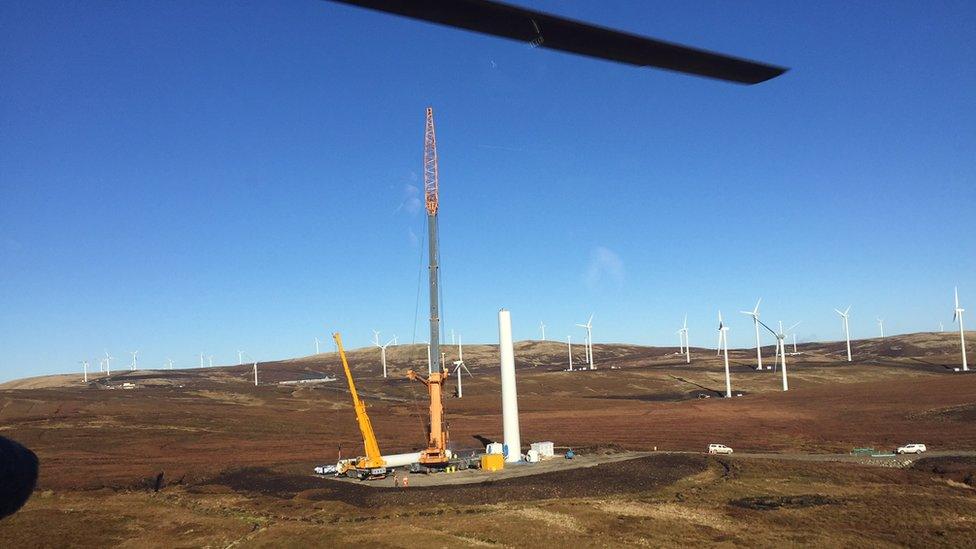
The UK government said a commitment was made in its election manifesto to scrap subsidies for onshore wind
The UK government said a commitment was made at the General Election to scrap onshore wind subsidies.
But Keith Anderson, chief executive of Scottish Power Renewables, said the "support" he was urging did not mean "subsidy".
He told BBC Scotland: "What we are asking for for onshore wind is a level playing field.
"There's a new mechanism in place for offshore wind, called contracts for difference. For gas investment the government have created a capacity mechanism.
"We're asking for a contract to help underpin some of the risk of making these big, long term investments. We're not asking for a subsidy."
'Potentially derailing'
Scottish Power said it was employing thousands of people in construction jobs as it builds its largest ever number of wind farms.
A total of 221 new turbines will go online in the year to March 2017, taking the total amount of electricity it creates rising to 2,000 Megawatts.
With 400 offshore turbines, it said wind would then create the equivalent amount of energy to Longannet Power Station at its peak.
The Scottish government is committed to delivering the equivalent of 100% of electricity demand through renewables by 2020.
Scottish Energy Minister Paul Wheelhouse told BBC Scotland's Good Morning Scotland programme that the policy had the potential to "disrupt" that aim.
He added: "We've made great progress. We've achieved 56% of that figure by 2015, which was ahead of schedule, but we're now seeing changes since the 2015 UK general election where the UK government is derailing potentially a very important industry, not just in Scotland but other parts of the UK as well and that's of great concerns to us."
Ministers at Holyrood are due to publish a draft energy strategy in January next year.
The UK government's stance is being supported by the campaign group Scotland Against Spin.
'Benefit significantly'
Spokeswoman Linda Holt said: "I think we're saturated. You talk to people who live in the countryside who are surrounded by wind farms, they think we've got enough turbines.
"We're already producing too much wind electricity in Scotland for us to be able to use ourselves so it's either being exported or when it's windy it's being constrained off."
Contracts for Difference are used to stimulate emerging green energy developers by guaranteeing a minimum price for what they generate.
Such a contract for Hinkley Point C nuclear power station was signed in September.
Although big players like Scottish Power will probably continue to build wind turbines, some fear smaller firms will suffer.
Lindsay Roberts, from the industry body Scottish Renewables, said: "Onshore wind is already one the cheapest and most popular forms of power generation. However the UK government has locked future development out of the energy market.
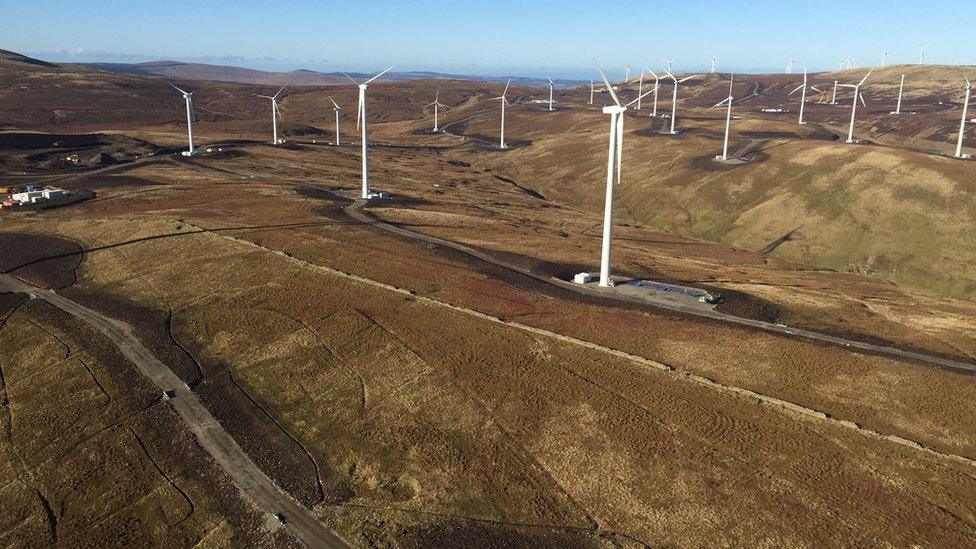
The Scottish government said it was committed to generating 100% of electricity demand through renewables by 2020
"Their own advisors say if we are to stand any chance of meeting our climate change targets we need to at least double our renewable energy capacity.
"So it's vital that the UK government tells us what the future of onshore wind is going to be and that they allow it to compete in that energy market."
A UK government spokesman said: "We are fully committed to providing secure, affordable and clean energy for the UK's homes and businesses.
"The renewables industry has been a strong success in Scotland thanks to UK Government support. Last year we invested a record £13bn in renewables across the UK, with Scotland continuing to benefit significantly from that support."
- Published5 October 2016
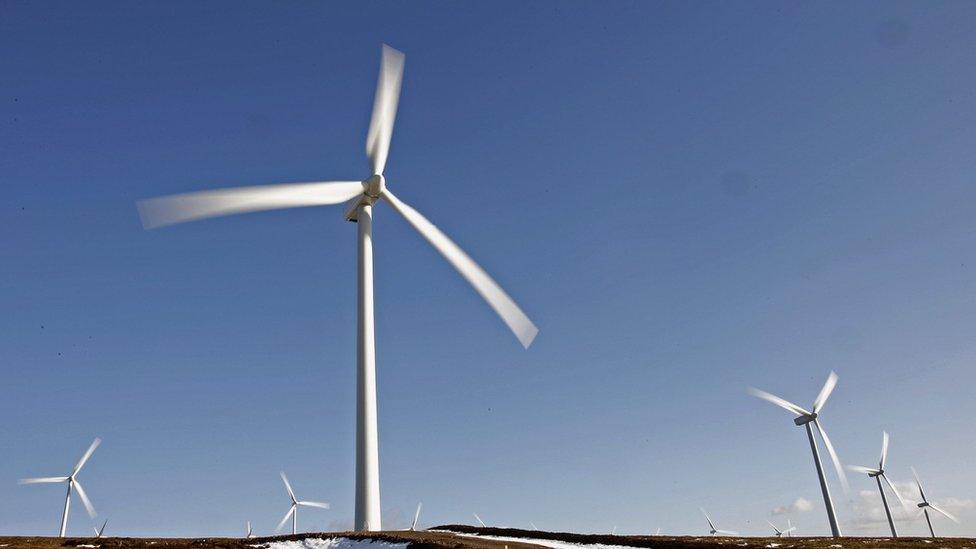
- Published20 July 2016
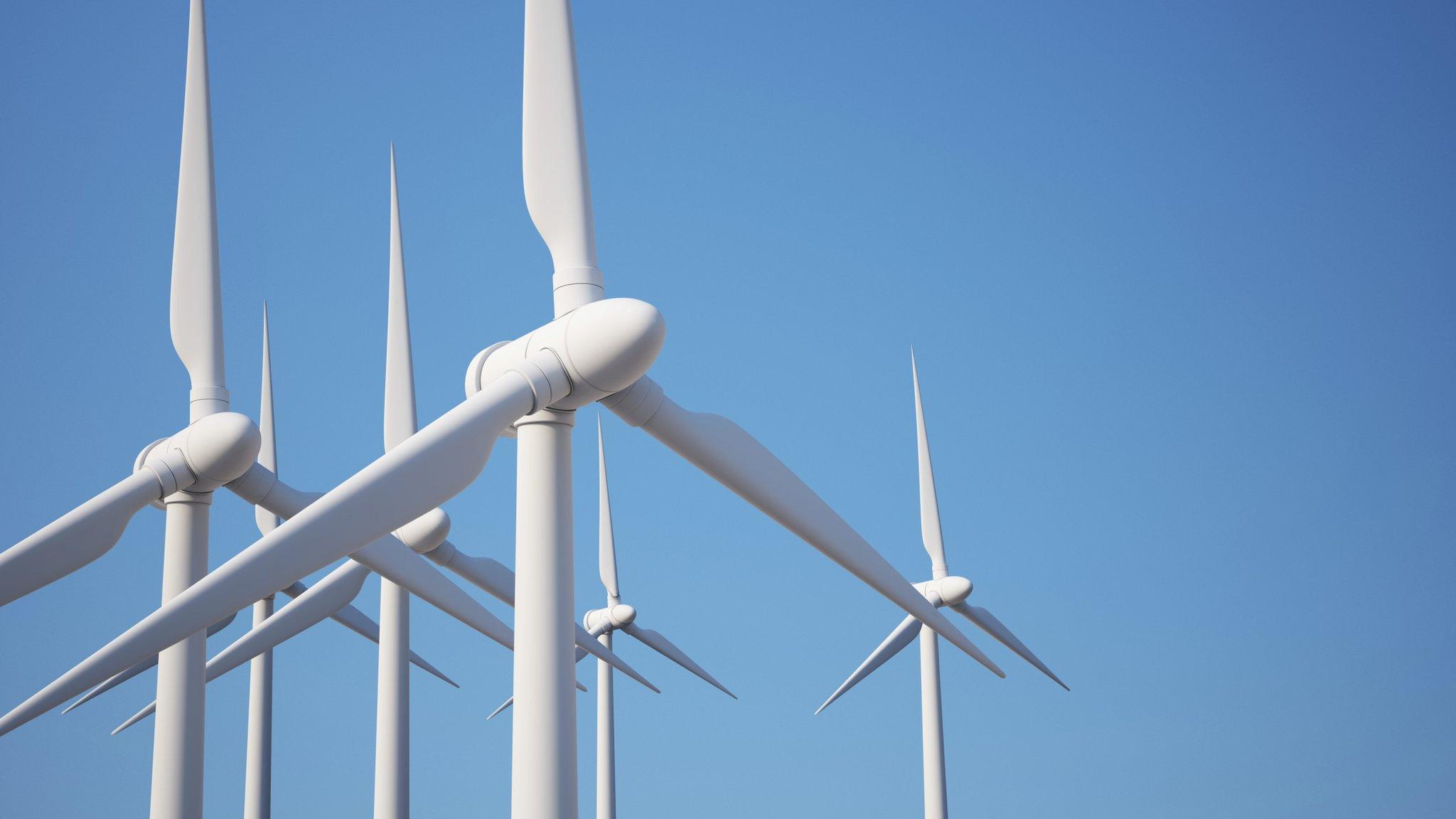
- Published3 May 2016
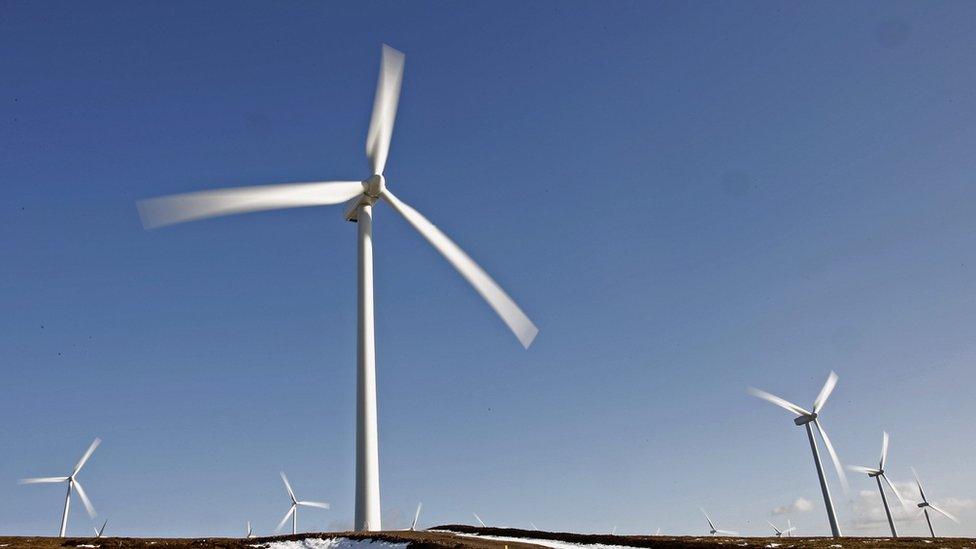
- Published25 April 2016
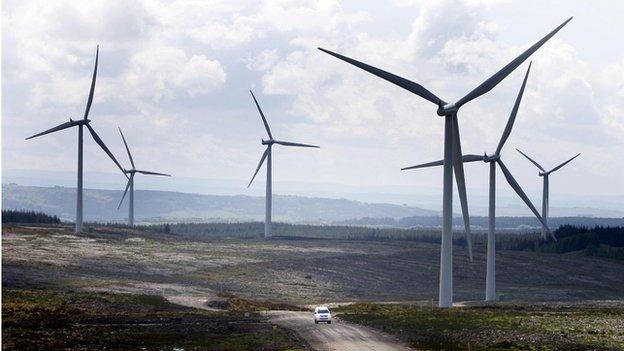
- Published18 June 2015
